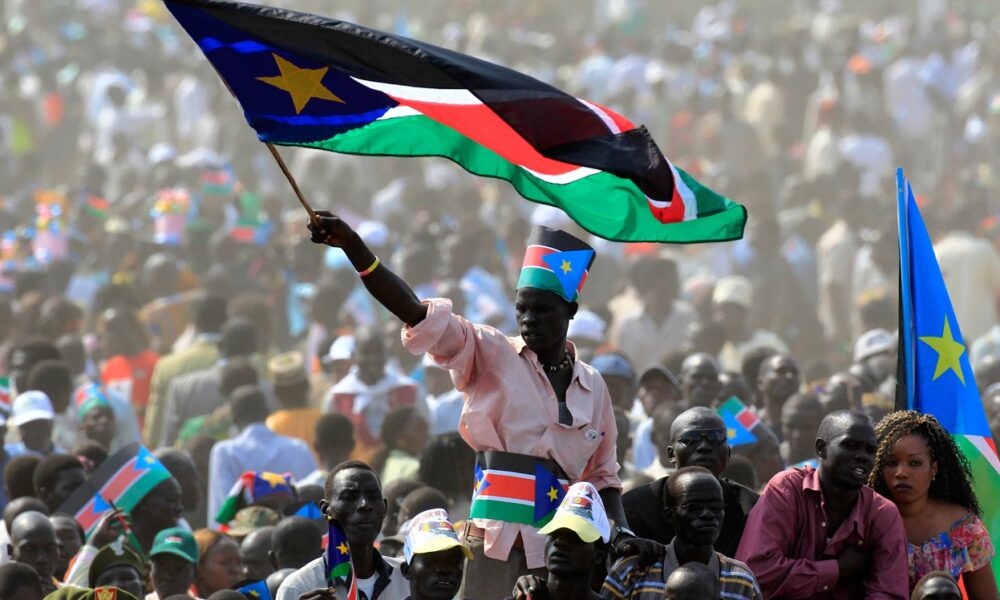By William Madouk
South Sudan is gearing towards the adoption of a full-fledged federal governance system, including fiscal federalism, as the 2026 transition period draws to a close.
A government official has disclosed that this type of federalism will distribute fiscal responsibilities and financial authority between the central government and subnational entities.
The concept of fiscal federalism has increasingly become popular nationwide as a means to address various challenges with managing state resources, promoting local development and assuring effective service delivery.
During a workshop on fiscal devolution and financial management, Minister of Federal Affairs Lasuba L. Wongo stated that elements of federalism would be incorporated into the permanent constitution to ensure equitable resource sharing and development throughout the country.
“We are moving towards establishing a federal governance system, which shall be the basis of our upcoming constitution. The next government, after elections in 2026, shall decide over the federal government of the Republic of South Sudan,” said Wongo.
He added that the concept of federalism has been an aspiration of the South Sudanese for decades.
“We are moving for a fully-fledged federal system, not half-federal or pseudo-federal, like others may think, which is similar to decentralization,’ he noted.
Mr. Wongo cited that fiscal federalism is a very critical aspect of the federalization of the economy of South Sudan.
“In this forum the best practices for us to avoid shortcomings as experienced by countries that have established federal systems and revolution systems of government that we are currently adopting in our next coming constitution,” said Wongo.
“I’d like to say that transparent use and management of public revenue is key to ensuring accountability,” he added.
To him, therefore, fiscal federalism is very important, because it’s one core aspect of federalization besides the administrative and political aspects of a federal system of government.
He urged experts to help get the best practice for the federal to help the nation develop, other than the main perpetual conflict due to lack of transparency and misuse of public resources.
Wongo said the transitional constitution provides for the decentralization of the government with more inclusion of powers and resources to the lower-level governments, that is the states and the local government.
The Federal Affairs Minister noted that the nation seeks to adopt and implement a federal system due to the weaknesses of the existing decentralization system, which has contributed to chaos and instability.
“In the areas of share in revenue, we have to delve deep to ask questions on how and what share of federal revenues should be distributed to the states in terms of what percentage,” he said.
For instance; what is the formula that we are going to use and what are the processes to determine the formula to establish the formula for that distribution, he questioned.
Dr. James Wani Igga the Vice President for the Economics Cluster said the participants in their discussion to compare with other countries that have similar practices to come up with the best recommendation.
He cited that the oil share does not reach the intended communities – It is from Juba to somewhere in the State, that the money does not reach the community.
“We must propose some working mechanisms to ensure the oil share reaches the local communities in the state,” Igga said.
In addition, the First Deputy Speaker for the Council of the State, Mary Ayen noted birth defects in the oil-producing area, especially in the Ruweng Administrative Area, and cast doubt on whether the companies were adhering to the environmental policy.
The fourth high-level forum summit to shed light on fiscal devolution and revenue management in the country commenced on Tuesday and was graced by Vice President Dr. James Wani Igga.’
The three-day summit that opened yesterday, comes amid clamour by the Council of States as oil-producing states and communities cry foul of the lack of the implementation of a 5 per cent oil share.
The Council of States organized the event in partnership with UNMISS and UNDP.
It draws together stakeholders like the National Ministries of Petroleum, Federal Affairs and Finance, policymakers, members of civil society and lawmakers, academia and the National Constitutional Review Commission.
Others include the Communities from the Oil Producing areas, and the national and state officials.
The first day will focus on national experiences of fiscal devolution and related policy recommendations and resolutions.
The second and third days will delve into fiscal federalism and wealth sharing in view of the permanent constitution-making process.




